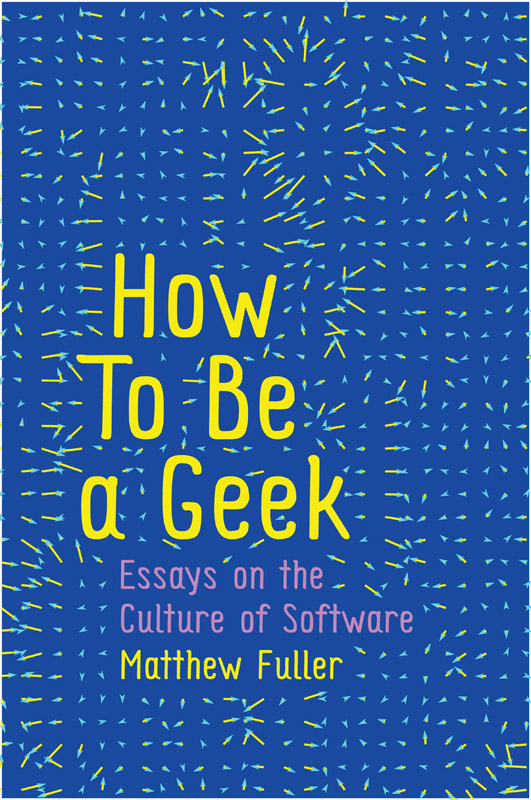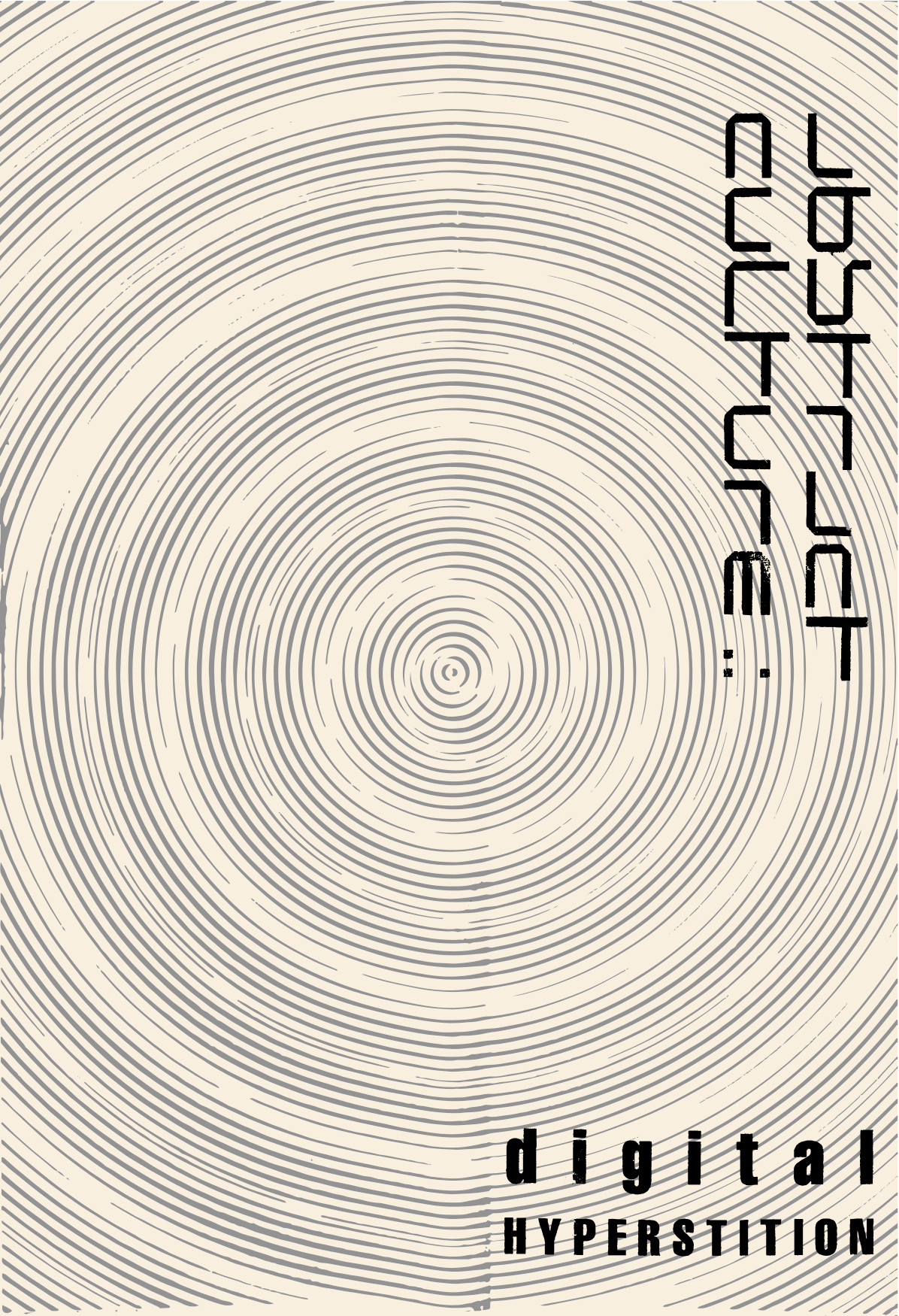Matthew Fuller: How To Be a Geek: Essays on the Culture of Software (2017)
Filed under book | Tags: · aesthetics, algorithm, computation, computing, database, information, language, media, media theory, networks, programming, software, software studies, theory

“Computer software and its structures, devices and processes are woven into our everyday life. Their significance is not just technical: the algorithms, programming languages, abstractions and metadata that millions of people rely on every day have far-reaching implications for the way we understand the underlying dynamics of contemporary societies.
In this innovative new book, software studies theorist Matthew Fuller examines how the introduction and expansion of computational systems into areas ranging from urban planning and state surveillance to games and voting systems are transforming our understanding of politics, culture and aesthetics in the twenty-first century. Combining historical insight and a deep understanding of the technology powering modern software systems with a powerful critical perspective, this book opens up new ways of understanding the fundamental infrastructures of contemporary life, economies, entertainment and warfare.
In so doing Fuller shows that everyone must learn ‘how to be a geek’, as the seemingly opaque processes and structures of modern computer and software technology have a significance that no-one can afford to ignore. This powerful and engaging book will be of interest to everyone interested in a critical understanding of the political and cultural ramifications of digital media and computing in the modern world.”
Publisher Polity, 2017
ISBN 9781509517152, 1509517154
x+233 pages
Poetry, Film, Humor: Narratives of Exception in the Years of Autarky (2017) [EN, ES]
Filed under book, catalogue | Tags: · art history, avant-garde, spain

“The years around World War, which was undoubtedly the most difficult phase of Franco’s dictatorship, also served as the back-drop for the development of a new avant-garde culture in Spain. Its birth is traditionally cited by art historians as taking place between 1947 and 1948, when groups such as Dau al Set in Barcelona and Pórtico in Zaragoza appeared or resumed their activities. The persistence, even today, of certain attitudes and poetics characteristic of that generation of artists as well as their extensive representation in the collection of the Museo Reina Sofía has made this period into one of the museum’s principal areas of research. As a result, it is essential for the museum to dig deeper in its analysis and critial (re)interpretation of this time.
With the restructuring and enlargement of the rooms devoted to this period, along with the present publication, the Museo Reina Sofía’s Collections Deaprtment seeks to significantly broaden the investigative scope traditionally applied to the visual culture of this period in Spain’s recent history.”
Publisher Museo Nacional Centro de Arte Reina Sofía, Madrid, 2017
Creative Commons BY-NC-ND 4.0 International License
ISBN 9788480265461
279 pages
Poetry, Film, Humor: Narratives of Exception in the Years of Autarky (English, 2017, 32 MB, via)
Poesía, cine y humor. Relatos de excepción en los años de autarquía (Spanish, 2017, 33 MB, via)
CCRU: Abstract Culture, 4: Digital Hyperstition (1999)
Filed under book | Tags: · mysticism, theory

“Digital Hyperstition is the Cybernetic Culture Research Unit’s definitive work of indisciplinary microcultural agitation. This explosive document brings together recovered hyperstitional episodes reported by Melanie Newton, Echidna Stillwell, and other students and victims of Lemurian time sorcery, with texts on popular numerics, afromathematics, polyrhythmic aquassassination, and Y2K panic. Also contains a presentation of Pandemonium, the complete system of time sorcery, authoritative rules for the games of Decadence and Subdecadence, and an invaluable CCRU glossary.”
Publisher CCRU, London, 1999
74 pages
Reprint (2017)
PDF (14 MB)
HTML (use menu at the bottom right)

